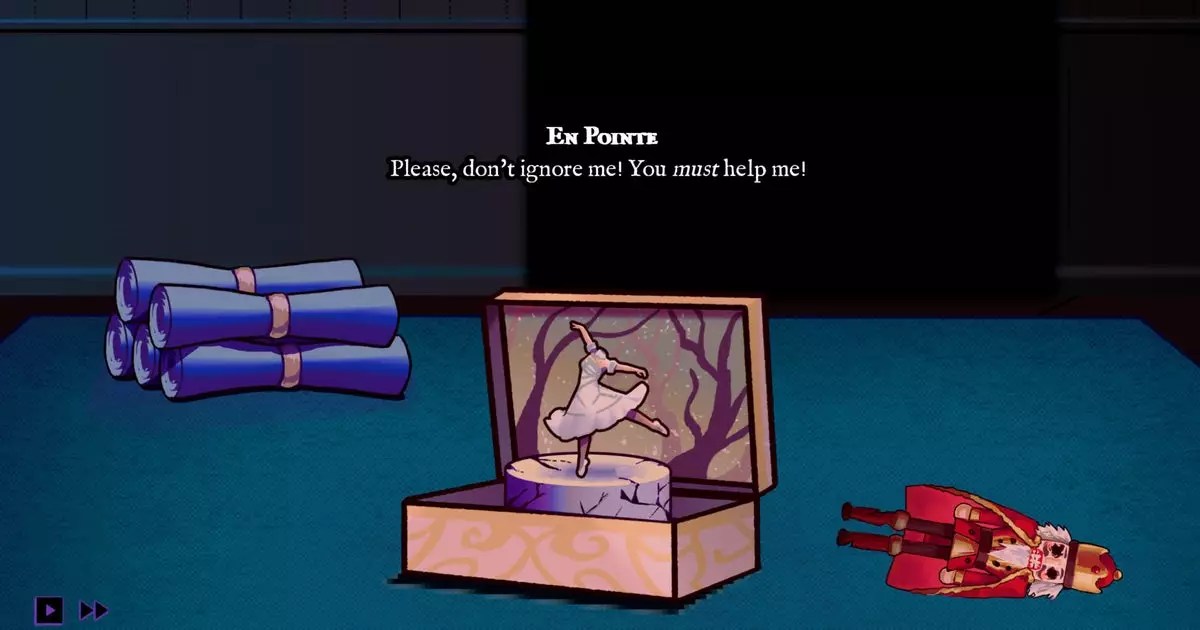At first glance, Toy Box could be mistaken for a festive and light-hearted game, one that invites players into a whimsical world filled with joy and gleeful merriment. However, the reality is far darker. Toy Box emerges as a free visual novel that intricately weaves together elements of macabre storytelling and puzzling gameplay. Players assume the role of a toy inspector employed by a bizarre Grand Toy Maker, whose identity remains cloaked behind the top of the screen. The premise is unsettling: disassemble toys under the guidance of enigmatic instructions, and decide whether to salvage these seemingly animated objects or condemn them to an incinerator.
The toys themselves are at the heart of the game’s eerie charm. They’re not merely passive objects; they possess a creepy sentience, engaging players with their unsettling dialogue and haunting recollections. The moral quandaries posed by the gameplay invite a sense of empathy towards these anthropomorphic figures, as they plead for their very existence. However, the façade of innocence quickly crumbles as each toy reveals its deeper, more sinister nature. Themes of suffering, malice, and blood emerge throughout the interactions. For instance, while one might initially be horrified at the thought of tossing a miniature talking ballerina into the flames, the narrative soon exposes the doll’s own dark history, suggesting a more complex relationship between the inspector and the toys.
The tone of Toy Box is unmistakably grim. From the foreboding atmosphere to the underlying themes of body horror and violence, the experience is crafted to unsettle. The content warnings provided are extensive and alarming, covering anything from gore to child abuse and religious themes. Such a comprehensive list reflects a game willing to explore the darker corners of the human experience. While the developers have been careful to avoid explicit imagery of sexual acts, they still delve deeply into traumatic and disturbing subjects. This dynamic complicates the player’s relationship with the game, making it difficult to engage without a sense of discomfort.
It is worth noting that the developers, DEADline Studios, are positioned as a small POC and Queer-owned team aiming to present narratives that explore the entirety of the human experience. They boldly confront the good, the bad, and the grotesque in Toy Box. The approach is an audacious one, repurposing the playful notion of toys into a broader commentary on the darker aspects of humanity. Rather than trivializing these themes, the game thrusts them into the forefront, demanding that players confront their implications.
One fascinating element of Toy Box is its mechanic of dismantling toys to uncover their stories. This concept invites reflection on the role of objects within our lives—how they can represent memories, fears, or lost innocence. The act of literally pulling apart these toys serves as a metaphor for peering into the heart of human experience, allowing players to engage with complex narratives in a visceral way. While some may draw parallels with other games that feature dismantling as a primary mechanic, such as Hardspace: Shipbreaker, the emotional stakes in Toy Box feel significantly heightened because the toys possess an appeal to empathy.
Toy Box presents a compelling yet disturbing exploration of the junction between childhood nostalgia and horror. By intertwining lighthearted whimsy with dark themes, the game challenges preconceptions about playfulness and engagement with tragedy. It raises vital questions about the toys we cherish and the darker stories they may conceal. As players navigate through the twisted imaginings of the Grand Toy Maker, they are left to ponder the very nature of companionship and how even the most innocuous-seeming objects can harbor unsettling truths. This blend of aesthetic whimsy and profound unease ultimately crafts a unique experience, inviting players to explore the complexity of the human condition through the lens of horror.


Leave a Reply